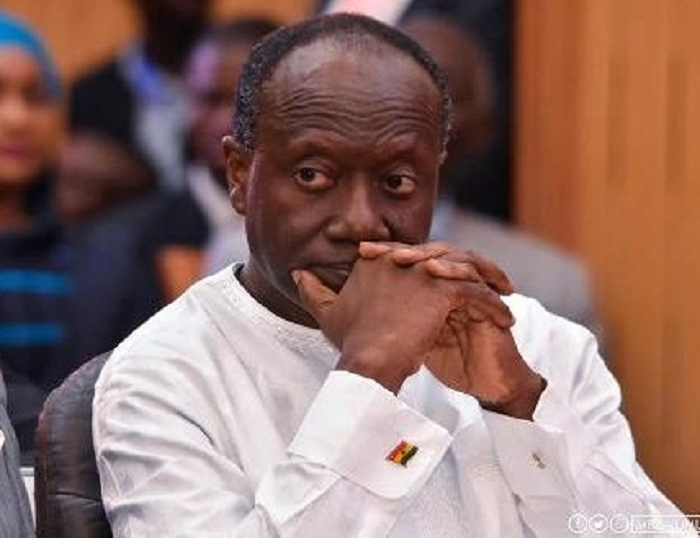
GH¢10bn bond faces investor fright
Fears of investor fright, caused by the controversy surrounding the recent US$ 2.25 billion bond, may hamper the GH¢10 billion bond that the government intends to issue next year to repay the energy sector debt.
Investor fright for the bond could translate into dampened appetite for the issue, a high coupon rate or both.
Advertisement
An economic analyst at Databank, Mr Courage Kwesi Boti, told the GRAPHIC BUSINESS that concerns about the country’s future bonds being hampered by the recent controversy had merit, considering the low demand for the government’s three-year bond which was just issued last week.
He said the low patronage of the bond provided some basis that the recent controversy over the US$ 2.25 billion bond may have affected the demand for the country’s bonds.
“Per the issuance calendar, the target for the three-year bond was GH₵800 million but the total bids received was only GH₵729 million. My thinking is that given the rhetoric that investor confidence has improved and the drastic demand for short-term yields, demand for the three-year bond should have exceeded what we got,” he stated.
“So on that score, arguments that the controversies surrounding the recent US$ 2.25 billion bond could be undermining demand may have some merit,” he added.
A Minority Spokesperson on Finance in Parliament, Mr Isaac Adongo, had earlier raised concerns that the controversy had dampened the confidence of investors in the country’s bond and this may persist till next year when the country issues the energy bond.
Speaking in an interview with the GRAPHIC BUSINESS, Mr Adongo expressed fear that this investor fright would lead to the inability to raise the required money, and even if they should succeed, it would be at a very high interest rate.
He said the government would even struggle to get the market to respond to the bonds and “this is why the same people whose turnaround time for raising a similar amount of US$2.25 billion was two days are now relying on the credibility of a transaction advisor for the energy bond and this is to whip confidence in the investing public.”
Lot of things may affect energy bond
Mr Kwesi Boti, however, pointed out that with regard to the energy bond, a lot of things could affect the demand for it, which might not necessarily be the controversies surrounding the country’s recent bond.
“The proposed bond is in a Special Purpose Vehicle (SPV) and not on government’s books. It is backed by cash flows from the Energy Sector Levy (ESL) which could be affected by government policy and this will be a debut on our market,” he stated.
He said that could affect the demand for the bond and would, therefore, require strong marketing from the book runners if it would succeed.
Energy bond will make energy sector viable
Mr Kwesi Boti believes issuing a bond to repay the energy debt now is the best option as it will free up the books of the energy sector SOEs to be able to borrow to expand and improve their efficiency.
He said that would also help free up the books of the banks, reduce their non-performing loans ratio and position them to give out more credit to the private sector.
“There may be different approaches to solving the problem but this government is looking at paying the debt at once. Paying it over a time using the ESL means the problems will still exist in the banking sector and there will still be challenges with the banks giving out loans and credit to the private sector. It means the challenges with the energy sector SOEs will also exist,” he noted.
Touching on the interest rate, Mr Kwesi Boti said taking into consideration the cedi which had depreciated by about 14 per cent in the last five years, the interest that government was paying to the banks as interest on the dollar loans was around 22 per cent and not 8.5 per cent.
“So if they are able to raise a cedi bond at even around 20 per cent, then that will be better,” he added.
Bond unnecessary
Mr Adongo, who is the Member of Parliament for Bolga Central, however, stated that it was not necessary for the government to issue a bond to repay the energy sector debt, when there was already an existing vehicle that was doing so, which is ESL.
“Why do you have to borrow another GH₵10 billion that will further increase our public debt when we have a regular flow of income that will solve the debt crisis in the energy sector in four to five years?”
“The previous government has restructured the energy sector debt with the banks with an agreement that resulted in the reduction of interest rates. For dollar denominated loans that the State Owned Enterprises (SOEs) in the energy sector took, the interest rate reduced from 12 per cent to 8.5 per cent. The cedi denominated loan which were between 28 and 30 per cent dropped to about 22 per cent,” he said.
For the 15-year bond to be appropriate, he said the government had to be looking at an interest rate that mirrored the negotiated interest rates that the previous government had with the banks. — GB




